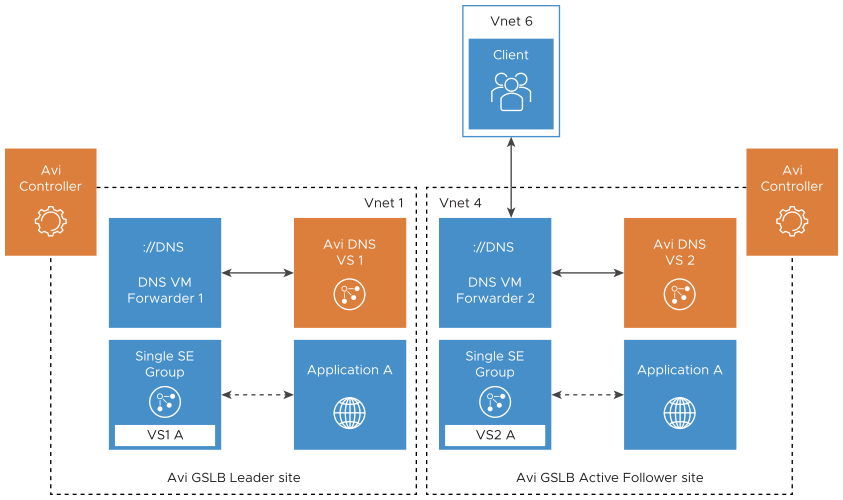This section covers the resolution of applications hosted in one VNet from another VNet.

FQDN Address Resolution
The client that is present on-prem wants to access Application A. The client sends an HTTPS request to download the home page of Application A. Its FQDN (
A.gslb.azure.com) needs to be mapped to an IP address that is not (yet) known to the client.As the DNS server configured for this subdomain on corporate DNS is DNS Forwarder IP, the request will go to DNS Forwarder VM for resolution. It will in turn forward the request to NSX Advanced Load Balancer's DNS (one of the two GSLB DNS instances, in this case to DNS VS1), and eventually, the IP for
A.azure.comwill be returned to the client.
Application Traffic Flows to Optimal Virtual Service
DNS-2 has two candidates for the optimal virtual service choice: VS1-A and VS2-A. It selects VS2-A2 based on the load balancing algorithm, health, client location, and so on. DNS-2 responds to the DNS query with the VIP of VS2-A, which eventually makes it to the original client. The client uses the VIP of VS2-A to send its HTTP request.
Local Load Balancing
SEs receive the request that has been directed to the VIP of VS2-A. It then load-balances it to one of VS2-A’s servers (app instances). VS2-A responds directly to the client.